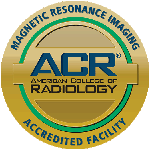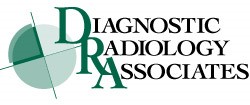Diagnostic Radiology Associates now offers advanced 3T Ultra High Field MRI at its Middlebury location, Turnpike Office Park, 1579 Straits Turnpike. 3T MRI provides unsurpassed image quality and resolution outperforming lower strength MRI units. The 3T MRI captures images with a level of detail, clarity, and speed never before possible, establishing a new benchmark in imaging.

AT our new location in Southbury, 690 Main Street South, we offer New England’s first Velocity Open MRI. The Velocity Open MRI delivers outstanding image quality, shorter exam times and patient comfort. It is ideal for the claustrophobic, bariatric, geriatric and pediatric patients. The extra wide table can accommodate patients up to 660 pounds.
Magnetic Resonance Imaging (MRI) is a diagnostic technique that combines a powerful magnet with an advanced computer system and radio waves to produce detailed images or “slices” of the human body. MRI does not use radiation and has no known side effects. A complete 3T MRI can take 15 to 45 minutes depending on what area is being scanned, a considerably shorter scan time than other units. The patient is placed on a padded table that moves into the MRI scanner. As the MRI begins to scan you may hear a “knocking” sound. This sound is normal and should not be of concern to the patient. We offer XM Satellite radio to listen to during your exam. After the exam a radiologist will prepare a report for your physician that will be forwarded to his or her office.
Patient Preparation
- There are no special preparations required for an MRI scan. However, if you are having a scan of your abdomen and/or pelvis you should not eat 4 hours prior to the exam. Medications prescribed by your doctor should be taken.
- Due to the sensitivity of the 3T MRI imaging you will be asked to wear a hospital gown for the exam. We will provide more than adequate coverage for your privacy.
- It is important that earrings, piercings, and watches be removed.
- All piercings must be removed for exam.
Arthrography/Arthrogram
Arthrogram is an X-ray study, used in conjunctions with a MRI scan, of a joint containing radiologic dye or contrast material. Arthrography can identify abnormalities in the shoulder, wrist, hip, knee, and ankle. No special preparation is necessary for this study.
The typical arthrogram takes 25-45 minutes. You may need to change into a gown depending on what area is being studied. A technologist will assist you onto a table and your skin surrounding the joint will be cleansed with an antiseptic soap and then injected with a local anesthetic. A needle is then inserted into the joint capsule. Joint fluid may be removed to send to the laboratory for analysis, or medication can be injected to alleviate joint pain. Then contrast material is injected into the joint. The needle is removed and you will then be taken to the MRI suit and images will be taken of the joint in various positions. After the study a radiologist will prepare a report for your physician which will be forwarded to his or her office.
After Discharge:
- The joint should be rested for 12 hours.
- You may experience swelling or discomfort in the joint. Apply ice to the joint to reduce swelling and take a mild over-the-counter analgesic. If the symptoms persist for more than 2 days or worsen, contact your doctor.
Precautions:
- Patients who are allergic to iodine and/or shellfish should inform the technologist prior to the study. An allergic reaction from contrast material in a joint is rare. However, different contrast material may be used.
- Because X-ray is used for this study you should inform the doctor or technologist if there is any possibility that you are pregnant.
Locations
Breast MRI
 Magnetic resonance imaging (MRI) is a noninvasive test used to diagnose medical conditions.
Magnetic resonance imaging (MRI) is a noninvasive test used to diagnose medical conditions.
MRI uses a powerful magnetic field, radio waves and a computer to produce detailed pictures of internal body structures. MRI does not use radiation (x-rays).
A breast MRI is intended to be used along with a mammogram or other breast-imaging test — not as a replacement for a mammogram. As with all MRI’s, jewelry, piercings, watches are to be removed and the pre test screening for metals and previous conditions must be completed.
Your doctor may order a Breast MRI for:
- Screening in women at higher risk for breast cancer
- Determine the extent of cancer after a new diagnosis of breast cancer
- Further evaluating hard to assess abnormalities seen on mammography
- Evaluating lumpectomy sites in the years following breast cancer treatment
- Following chemotherapy treatment in patients recovering neoadjuvant chemotherapy
- Evaluating breast implants
